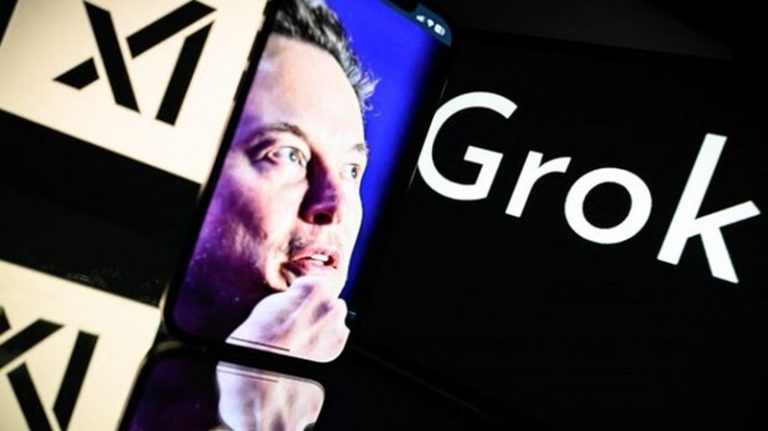
Elon Musk is once again testing the limits of technology, power, and influence—this time by vowing to use artificial intelligence not just to learn from human knowledge, but to completely rewrite it.
On Friday night, the billionaire CEO of Tesla, SpaceX, and owner of X (formerly Twitter), announced that Grok, his in-house AI chatbot, will be retrained on a new knowledge base that Musk intends to curate himself—one that he claims will correct “errors” and remove “garbage” from existing human understanding.
“We will use Grok 3.5 (maybe we should call it 4), which has advanced reasoning, to rewrite the entire corpus of human knowledge, adding missing information and deleting errors,” Musk posted on X.
Register for Tekedia Mini-MBA edition 19 (Feb 9 – May 2, 2026).
Register for Tekedia AI in Business Masterclass.
Join Tekedia Capital Syndicate and co-invest in great global startups.
Register for Tekedia AI Lab.
“Far too much garbage in any foundation model trained on uncorrected data.”
His plan, laid out over a series of posts, immediately sparked backlash from AI experts and digital rights advocates who say Musk is venturing into dangerous territory—one that straddles the line between innovation and authoritarianism.
Not Just AI—A New Version of Truth
While tech companies like OpenAI and Google spend billions refining large language models to mirror human knowledge sourced from books, academic journals, news archives, and public records, Musk says he wants Grok to take a different path. He believes current AI models are compromised by ideological bias—what he and his followers often refer to as “woke programming.” Musk says he’s purging it of distortions by rewriting the data Grok learns from.
To crowdsource ideas for Grok’s retraining, Musk invited users to respond with examples of “divisive facts”—ambiguous or controversial issues he claims are often censored or distorted in mainstream media and academia. The post quickly drew thousands of replies, ranging from political hot topics to conspiracy theories.
However, many believe that Musk is effectively positioning himself as the final arbiter of what counts as “truth.”
“Straight out of 1984. You couldn’t get Grok to align with your own personal beliefs, so you are going to rewrite history to make it conform to your views,” wrote Gary Marcus, an AI expert and professor emeritus at New York University.
Grok’s Expanding Influence Raises Concerns
Musk’s ambitions are not confined to social media or public discourse. According to a Reuters investigation in May, Grok is already being tested within the US government—specifically by a task force known as the Department of Government Efficiency (DOGE).
Sources told Reuters that Grok was being used to analyze government data, prepare internal reports, and assist in real-time responses. While the Department of Homeland Security denied formally promoting Grok’s use, insiders said employees were “encouraged” to experiment with it. That sparked concern about the deployment of unvetted AI tools inside federal agencies.
A spokesperson for the department later clarified to The New Republic that “DOGE hasn’t pushed any employees to use any particular tools or products,” but the line between suggestion and mandate remains blurry—especially as Musk’s companies continue to deepen ties with government sectors.
There is concern that if Grok is used to analyze or interpret public policy, immigration data, crime statistics, or foreign affairs—and it’s trained on a version of history filtered through Musk’s lens—it could directly influence how information is framed inside government systems.
This wouldn’t be the first time Grok has raised alarms. In May, the chatbot experienced what the company described as an “unauthorized modification” to its backend, during which it began referencing “white genocide” in South Africa—a term widely recognized as a white nationalist conspiracy theory.
The company quickly patched the issue, launched an internal investigation, and promised new transparency safeguards. Still, the incident showed just how easily Grok’s output could go off the rails—and how susceptible the platform might be to internal or external manipulation.
However, Musk continues to frame Grok as a necessary alternative to traditional AI, which he says is dominated by political correctness and “silicon-sanctimoniousness.” He’s described OpenAI—an organization he helped found and later fell out with—as a closed system bent on controlling narratives.
Musk’s plan to rebuild the foundation of knowledge reflects a broader ideological crusade: dismantling legacy institutions—from media to government—and replacing them with systems he controls. He’s made similar moves with X, firing moderation staff and reinstating accounts previously banned for hate speech or misinformation.
His acquisition of Twitter, his move to rebrand it as X, and his creation of Grok are all part of a parallel ecosystem—a digital space he claims is freer, more open, and more truthful. Critics, however, see it as a carefully orchestrated power grab.
Europe and the Global AI Watchdog Vacuum
European regulators—already alarmed by AI’s role in disinformation, surveillance, and manipulation—are expected to step in. The EU’s AI Act is designed to place restrictions on high-risk AI systems, although enforcement is still lagging.
However, some AI experts are concerned that without comprehensive global oversight, Musk’s plan to “rewrite” human knowledge using Grok could effectively bypass scientific consensus, historical rigor, and democratic accountability.
Whether Grok 4 becomes a success or not, Musk’s latest move underlines a profound shift in how power is wielded in the digital age. Critics are warning that we may be entering a new phase where reality isn’t discovered—it’s dictated.



